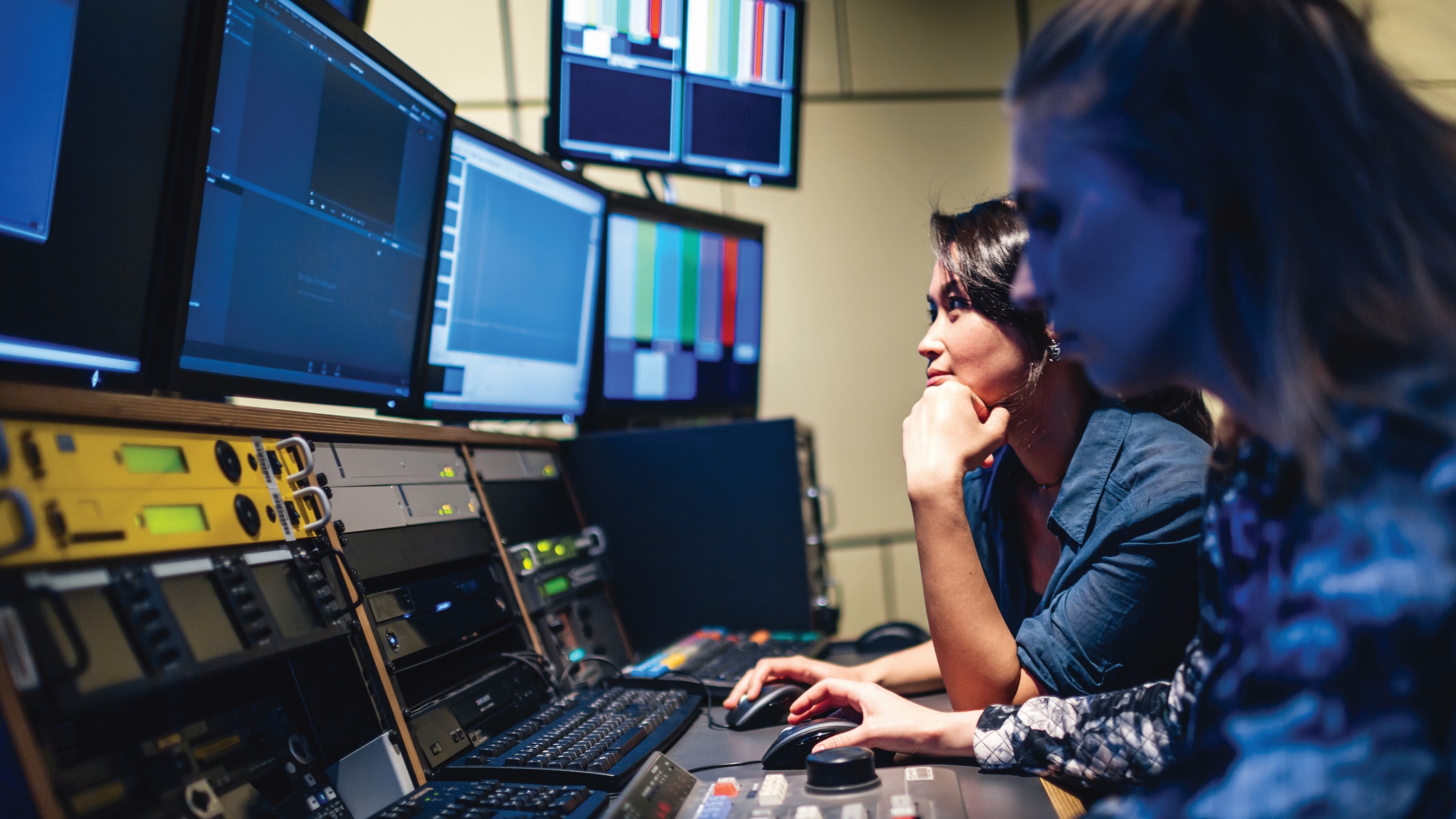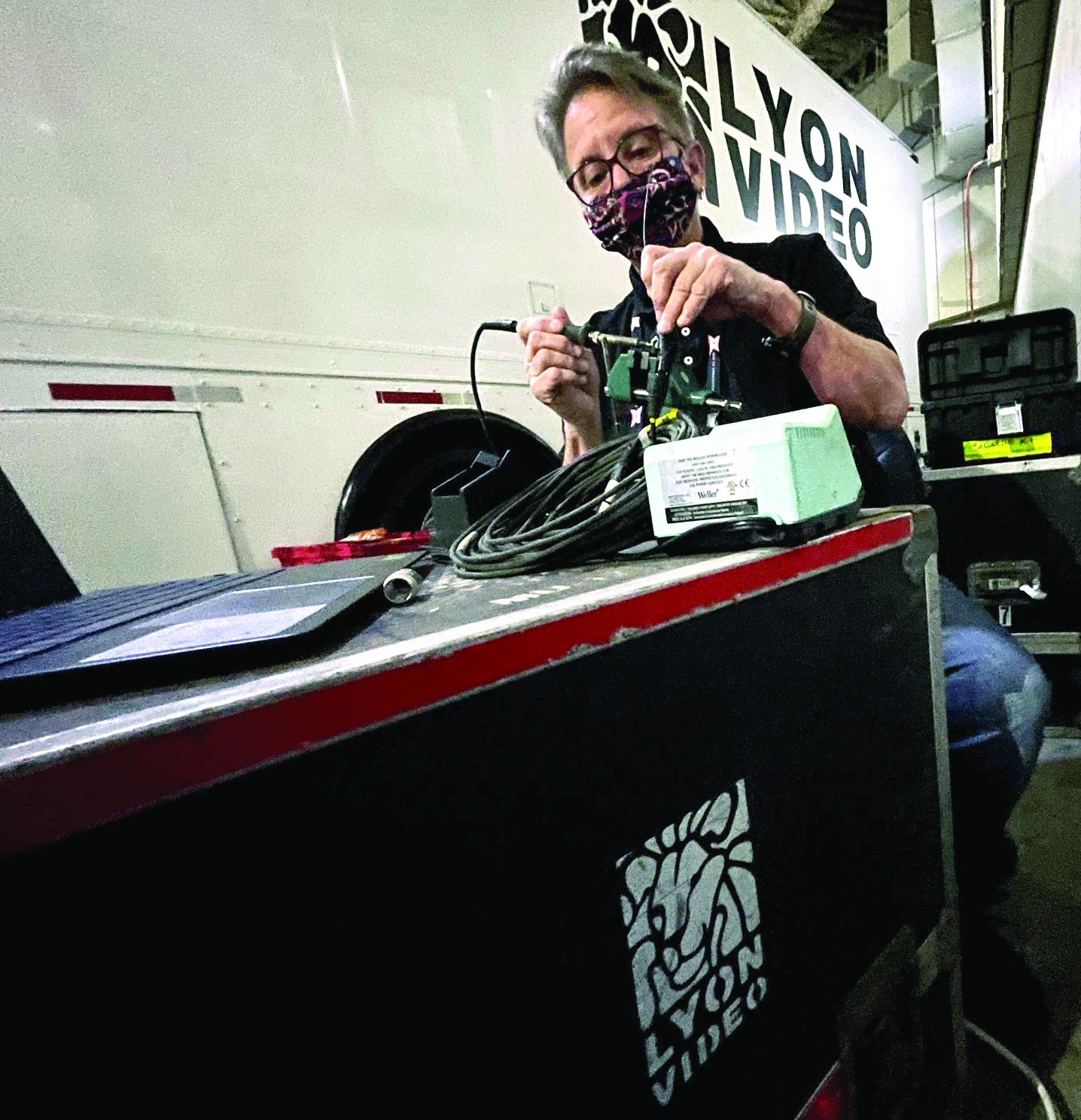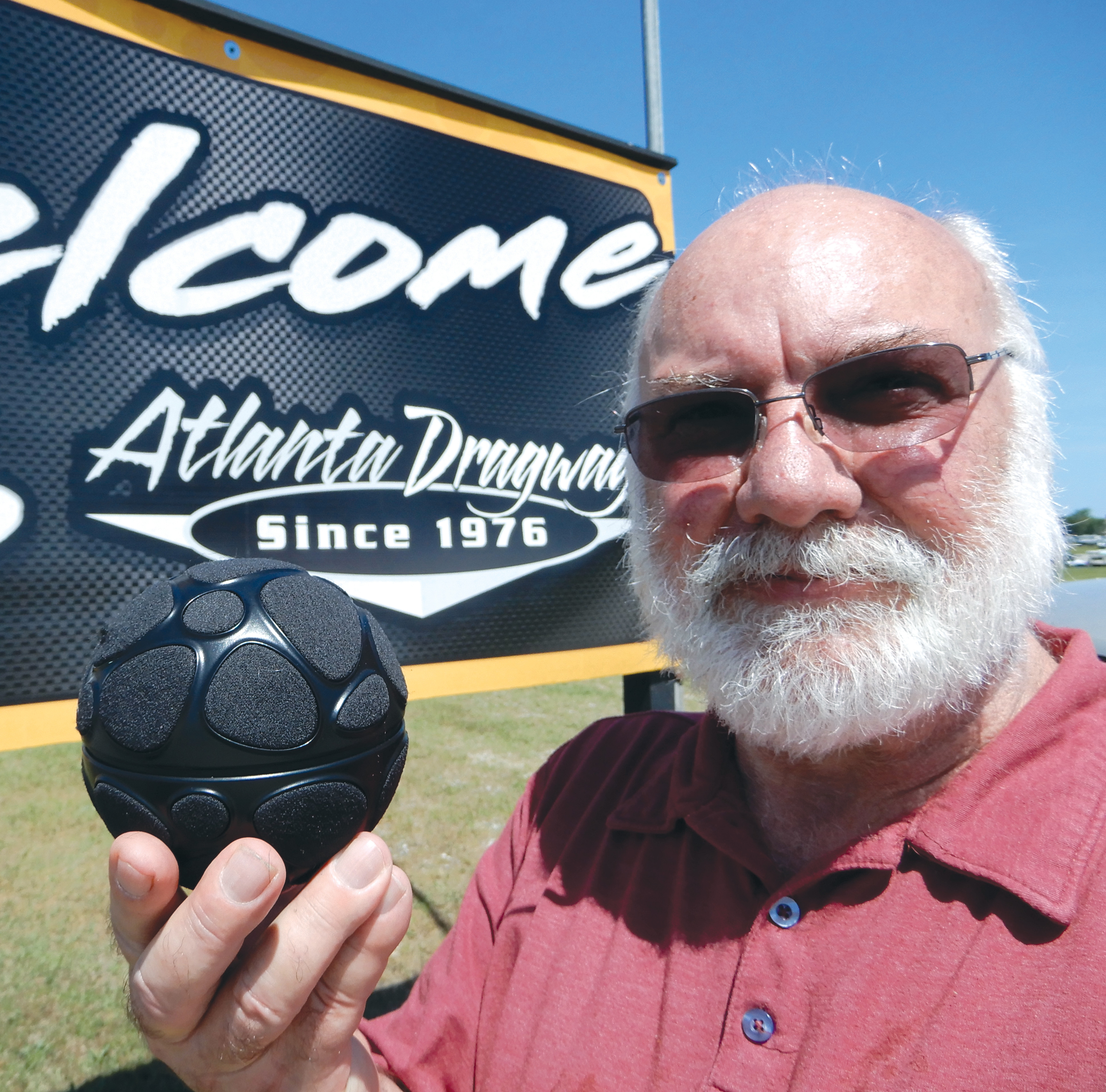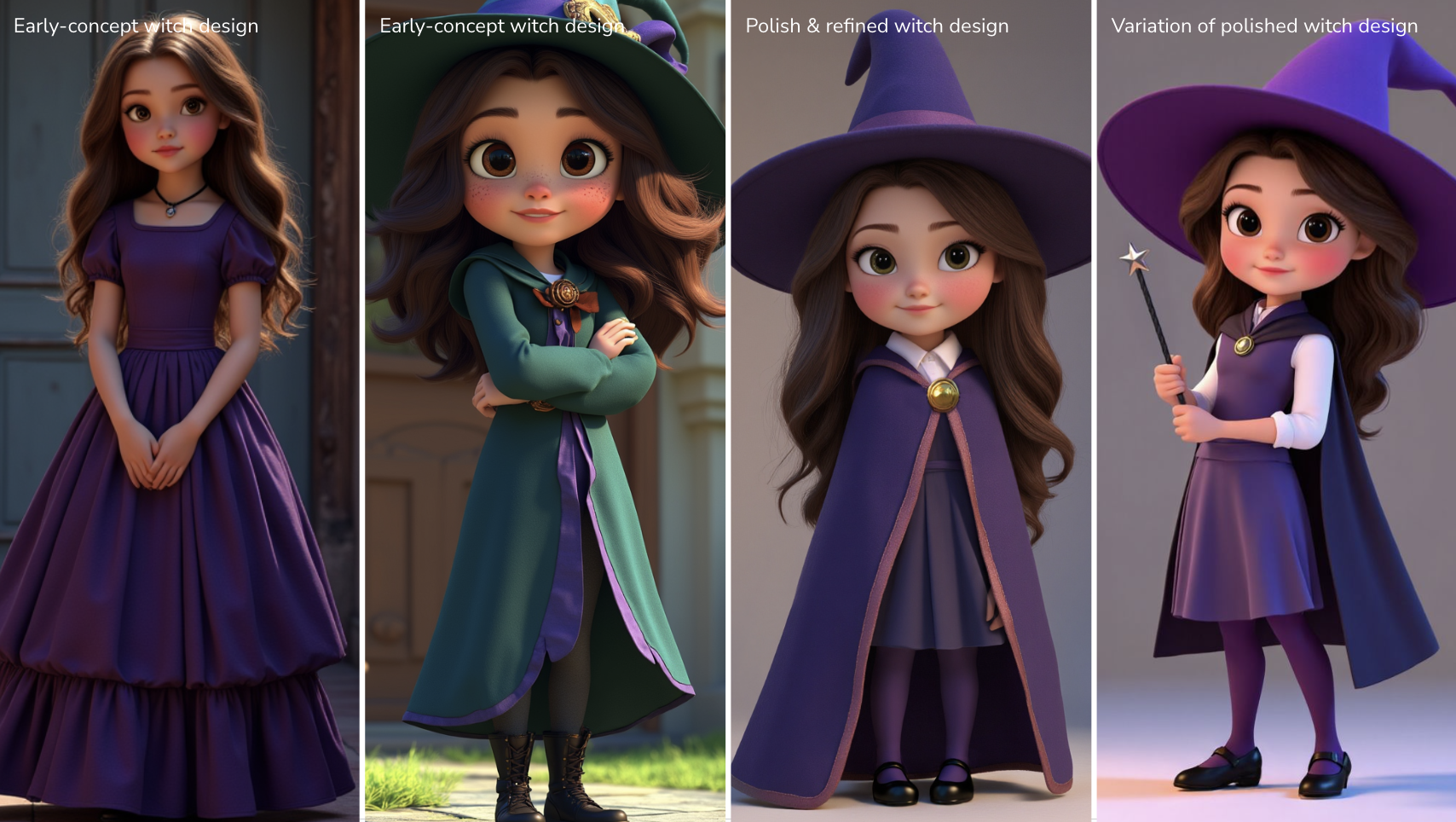Meeting the Challenge of Industry Diversity
Attitude, accountability, education and mentors play a part

I have often said that I believed the broadcast industry is usually fair and judges you by your performance on every single show. But in the course of this story, I had candid conversations with some tenured and respected folks in television and scratched some old wounds.
I am from Atlanta, and Ted Turner brought much more than Braves baseball to America. No doubt, baseball and all Atlanta sports provided a lot of content for a fledgling television operation, but Turner Sports needed television operators and technicians to run the equipment.
Turner Sports found, developed and nurtured an army of hometown and regional people that provided a first-class crew in a world where a decade earlier there were few jobs available for camera, audio and other technical operators. Before the AOL debacle, Turner Sports was an operation that rivaled anything the networks had.
DIVERSITY AT TURNER SPORTS
I think of that group of people at Turner and I only remember seeing a family of different races and gender. That does not mean they all sang in perfect harmony, but when you put a diverse group of people together for more than 250 events a year there usually is an exchange of ideas and experiences that changes people. I still try to understand why racial prejudice and gender bias keeps hanging on, but I would like to say I think broadcast folks are beyond it. I hope!
Turner Sports and ESPN changed the system and by the mid-1980s the change from staff television technicians and practitioners to freelance was well underway and by the early ’90s most sports practitioners and technicians were freelance—wow, what a paradigm shift.
I think in the early part of the transition some of the hostilities between staff, former staff and the new cadre of freelancers was the fact that many of the staffers were worried about their jobs and having to compete in a new freelance world.
However, I would like to suggest a few more reasons why I think broadcasting does not have a more diverse workforce. I think attitude, accountability, education and lack of role models explain many of the obstacles for entry-level difficulty and long-term broadcast careers.
When I joined the ranks of remote operation it was obvious that outside broadcasts and live sports could be intimidating. The OB domain was worlds away from the eyes of executive management in Los Angeles and New York, and attitudes and the lack of accountability was pervasive.
Remember, before ESPN and Turner there were only three commercial networks—ABC, CBS and NBC. ABC had a history of arrogance and lack of accountability that is depicted by several books, but it was making money, had great ratings and was a leader in sports programming for decades. So if you wanted to work in sports, you essentially had to suck it up. It was generally laughed off, always stated that it was “nothing personal” and that you had to have thick skin to work in outside broadcast, (see my column “It’s Open Mic Night” in the October 2020 issue).
Certainly every day use of electronic communications known in the industry as “THE PL,” something that holds the entire crew hostage for hours during a live show, contributes to the insensitivity. You are talked to, talked at and talked around by many people you don’t see. I think this tends to bring out the worst in some people who might think the electronics desensitizes some of the hurtful language.
At the end of the show there usually is a lot of backslapping and “see you down the road” kind of stuff. But consider the fact that the director, producer and other senior level technicians control your employment—particularly in the early emerging freelance world. Most of the time you just sucked it up and moved on. I do remember sensing some of the “what are you doing here” attitude, loosely implying that someone was not smart enough or maybe that women are not technically adept. Smart enough? Audio folks like to call themselves “audio engineers.” Well I have only met a few real audio engineers in 40 years, but I know a lot of talented audio practitioners.
Additionally, I do not believe that an engineering degree is necessary for most of the jobs in outside broadcasting. If you are working in audio you need to know some basic electronics, have the stamina for setting up equipment and have the aptitude for logical thinking and troubleshooting. Audio practitioners now are not required to “fix it.” There are real engineers like my friend Pat Dixon, a Turner veteran and woman who has earned her stripes and respect to handle that.

ON-THE-JOB TRAINING
I think the education world is doing a major disservice to the broadcast world by pimping an expensive four-year degree to get an entry-level position. There is a private school that has an elaborate OB van that does side-by-side educational training to teach students how to mix in a world where those students will not see the mixing console, much less mix an entry-level show for many years.
I question, is it worth it? On-the-job training (OJT) goes a long way in qualifying people to move forward in the industry and is an important place to find role models and mentors. NEP has led the way with internships and OJT resulting in full-time employment for many people. NEP will start you at the bottom, but if you are willing to work, they are willing to teach.
While emphasis has been placed on on-camera diversity, if you can’t see behind the scenes there is little to draw new people into the industry. I think the lack of role models has contributed to a lack of diversity.
I worked for the International Olympic Committee for 27 years. The greatest thing my former boss Manolo Romero did was create the Host Broadcast Training Program to educate, inspire and fill the pipeline for future quality broadcast people. Romero made his entire staff available to teach at several universities to foster a spirit of inclusiveness.
My first teaching experience began at the 1996 Olympics in my hometown of Atlanta at Clark Atlanta and Spellman University. I worked hard to give about 250 students enough basics so they would be useful, but also be an ambassador from the Host Broadcaster to assure everyone would be treated fairly in the selection process. There was a lot of competition for these positions and it didn’t take long for most of them to realize that their first job out of school would be at the Olympics and get paid! I still hear from some former students who have worked professionally in the business for over two decades.
I think that broadcasting is a fair industry where you are judged on your performance at every show—as you should be. I also think the technical side of the industry is largely diverse. But I do think that people can be insensitive and make disparaging remarks, out loud or under their breath and on open headsets. Yesterday, as well as today, this should be considered harassment or a hostile workplace.
Whether said in jest or not thinking that anybody can hear, or saying “it’s just locker room talk,” it’s still harassment and doesn’t foster inclusiveness. There usually is an open microphone somewhere.
Dennis Baxter has spent over 35 years in live broadcasting contributing to hundreds of live events including sound design for nine Olympic Games. He has earned multiple Emmy Awards and is the author of “A Practical Guide to Television Sound Engineering,” published in both English and Chinese. He is currently working on a book about immersive sound practices and production. He can be reached at dbaxter@dennisbaxtersound.com or at www.dennisbaxtersound.com.
Get the TV Tech Newsletter
The professional video industry's #1 source for news, trends and product and tech information. Sign up below.
Dennis Baxter has spent over 35 years in live broadcasting contributing to hundreds of live events including sound design for nine Olympic Games. He has earned multiple Emmy Awards and is the author of “A Practical Guide to Television Sound Engineering,” published in both English and Chinese. His current book about immersive sound practices and production will be available in 2022. He can be reached at dbaxter@dennisbaxtersound.com or at www.dennisbaxtersound.com.

